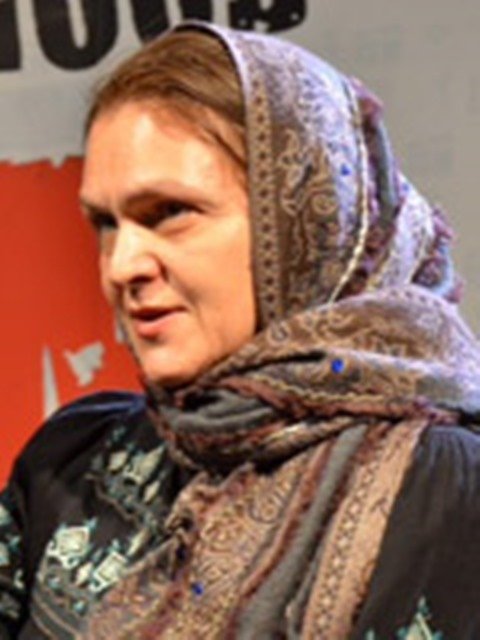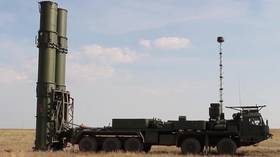‘Ukraine turned into arena of confrontation between external forces’
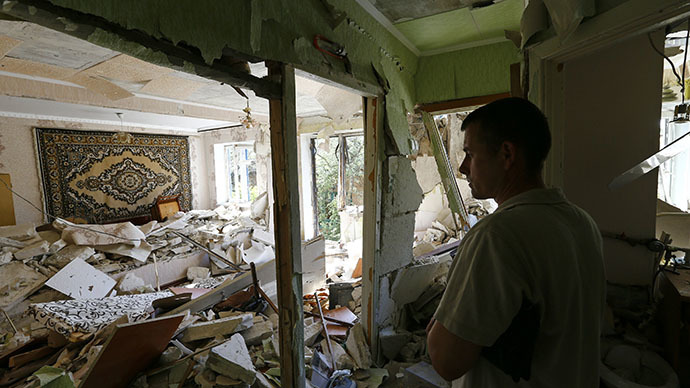
The last anti-fascist hero of Europe believes that Ukrainians should determine their own destiny, without the interference of any foreign players or international brigades.
Manolis Glezos, a Greek politician, is the most renounced European anti-Nazi hero with real resistance experience. In 1941, at the age of 19, he scaled the Acropolis, tore down the Nazi flag and replaced it with the Greek flag. He spent 16 years in jails, being imprisoned by Nazis, as well as by the Greek military regime. He was sentenced to death three times.
Today Glezos is 91. He was elected to the European Parliament in the 2014 election, and won an unprecedented 27 percent of the votes for the SYRIZA left-wing party. In Greece he is considered the most popular politician who, unfortunately, doesn’t want to run for senior office. In March 2010, Glezos was participating in a protest demonstration in Athens when policemen used tear gas against him.
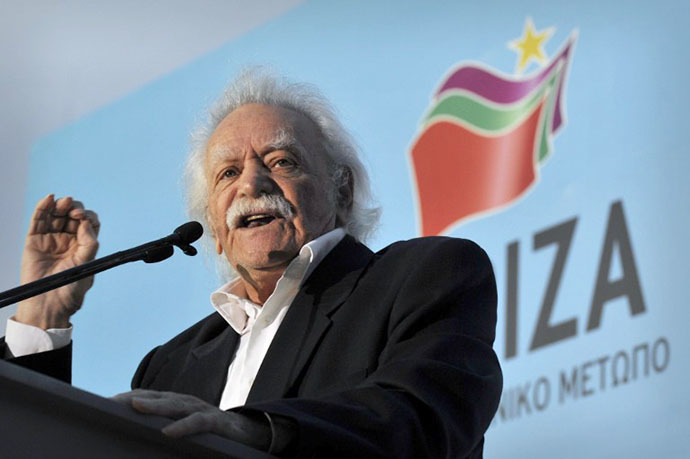
RT interviewed Manolis Glezos just before his departure to Brussels. He believes his key task is to obtain German apologies and reparations to Greece, as the latter remains the only country invaded by the Nazi regime that has never seen even a technical apology since the end of World War II.
RT:What would you say of the situation in
Ukraine?
Manolis Glesos: It is very complicated. Sadly enough, today Ukraine has turned into an arena of confrontation between forces that have nothing to do with the Ukrainian people. The current events have been triggered by external, rather than internal factors. Some Ukrainians are protecting foreign interests rather than the interests of their own fellow men.
The most essential thing for any given people is self-determination and the ability to choose its own future. And it should be up to the Ukrainian people, rather any foreign forces, to decide. I have always advocated every country’s freedom from the newly emerged Nazi organizations, which believe they can play the role of a mouthpiece for Ukrainians’ interests.
This is an issue of competition among Ukrainian minorities, which can only be resolved once the minorities can make it clear what they actually want – just like the Crimeans made their own choice. But I am not trying to lecture anyone on what they should do. It is the people who should realize what they actually want.
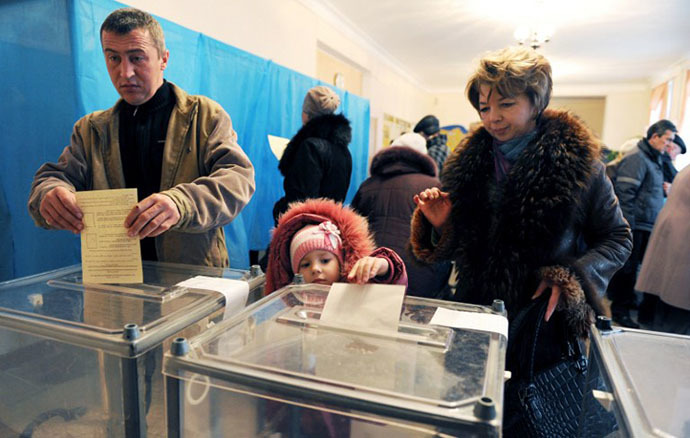
RT:There are a variety of opinions on Russia’s involvement in the situation in Ukraine. What is your view on that?
MG: I can see Vladimir Putin being pretty careful about this. He does not take any action that could be categorized as intervention, and I guess he is doing the right thing.
RT:The militias in the Ukrainian southeast are known to shoot down planes and helicopters carrying Ukrainian servicemen. How would you comment on this? Is this a civil war?
MG: I wouldn’t like to speak from hearsay before I have studied every aspect of the situation. Sometimes, as you delve deep into the situation, you look at it in detail, and this makes you change your opinion. But I do support all the minorities that fight for self-determination.
RT:Do you think Greece can support the idea of sending international brigades to Ukraine?
In the 1980s, Glezos established a community in his homeland island of Naxos, where together with his supporters he was able to implement a socialist model of grassroots democracy without any coercive measures. The farmers’ community included two universities, a weather station, and four museums. However, the project was subsequently destroyed by means of red tape. Glezos and his supporters were pushed off the island, and the community - as well as the farms, universities and museums - was shut down.
MG: I am against it and so are all the Greek people. I have been saying from the very beginning that Ukraine should not become the arena for confrontation between different third parties. I’m going to address the European Parliament soon advocating the idea that Europe should belong to Europeans. I don’t think Germany’s taking over Europe is a good idea. On the other hand, I don’t want Europe to be taken over by NATO. Europe should be a union of peoples, of all European citizens. When I say ‘Europe’, I imply Ukraine and Russia as well.
RT:European Nazi and right-wing parties appeared the most active in supporting southeastern Ukraine. Greek Nazis share their enthusiasm. How would you explain it?
МG: I’d refer to the Soviet history for the answer. The first organization established in German-occupied Greece was National-Socialist Patriotic Organization. Germans and traitors created an army that they intended to use against the USSR later. But their plan was foiled. A lot of Germans and Greeks were killed. They failed to create an army that could confront the USSR. When I was speaking on the issue at a meeting in Moscow, Marshal Budenny said I was right. He said that during WWII representatives of all peoples of the world happened to become prisoners of the Soviet troops but no Greeks were among them. Greeks are the only people who didn’t fight against the USSR. We have the evidence on paper.
RT:Do you keep in touch with the Greeks in Crimea? What is their opinion on what’s going on? Do they support a united or separated Ukraine?
MG: I know many people from Ukraine – not only Greeks, but also Ukrainians that came to work in Greece. Their views are different.
The statements, views and opinions expressed in this column are solely those of the author and do not necessarily represent those of RT.
The statements, views and opinions expressed in this column are solely those of the author and do not necessarily represent those of RT.
